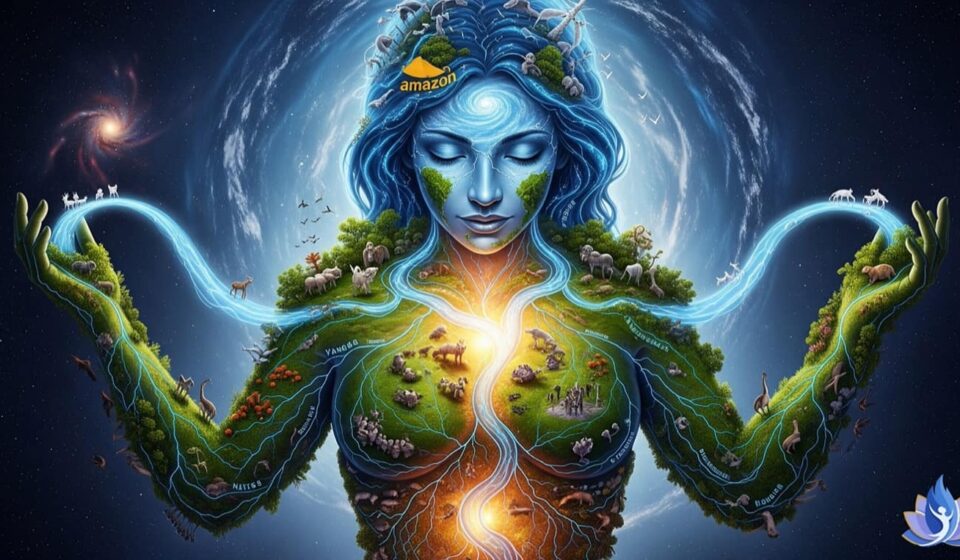
Ancient Indian Wisdom: Can Timeless Teachings Protect Our Earth Mother Today?
In today’s world, where climate change and environmental crises loom large, looking back to ancient wisdom offers more than nostalgia — it offers guidance. Ancient Indian texts are rich with profound calls to honor and protect the Earth, reminding us that our well-being is deeply woven into nature’s fabric. Phrases like “Protect earth as mother” and “Rivers are lifelines” are not just poetic expressions; they embody a holistic philosophy that might just hold the key to navigating our present ecological storm.
Table Of Content
Scriptural Guidance: Reverence for Earth as Mother
The roots of environmental consciousness run deep in Indian scriptures. The Atharva Veda, one of the four Vedas, vividly portrays the Earth as Mātā Bhūmi, the Mother Earth. It says:
“माता भूमि पुत्रोऽहं पृथिव्याः”
Mātā bhūmi putro’ham pṛthivyāḥ
(Earth is my mother, I am her child)
This Sanskrit shloka beautifully encapsulates the sacred relationship between humans and the planet. It’s not merely about stewardship but a familial, spiritual bond that commands care, respect, and gratitude. Treating Earth as a mother calls for Dharma—our righteous duty to protect and nurture her.
In the Rigveda and Yajurveda, rivers, trees, and fire (Agni) are revered as divine forces. The Vedic scriptures emphasize living in harmony with the panchabhuta—the five great elements—earth, water, fire, air, and ether—underscoring the interconnectedness of all life. The famous Rigveda verse declares:
“Walk together in harmony; speak with one voice; be of one mind, as the gods of old cooperated for the common good.”
(Rigveda 10.191.4)
This underlines the shared responsibility we hold toward nature and one another.
Action Steps Rooted in Ancient Teachings
Ancient wisdom was not merely theoretical; it came with practical injunctions that can inspire modern ecological action:
• Reduce, reuse, and recycle with intention, not compulsion. The Vedas urge moderation and conscious consumption to maintain balance. This means living simply and mindfully, aligning needs with nature’s rhythms rather than exploiting resources.
• Participate in community clean-ups as acts of devotion. Just as ancient communities engaged in rituals to honor nature, today’s collective efforts in cleaning local rivers, forests, and streets carry on this legacy. These acts become spiritual offerings, not just chores.
• Educate new generations in the spiritual significance of the environment. Embedding ecological reverence in education ensures that future custodians of the Earth will inherit not only knowledge but also heartfelt respect. Stories, rituals, and cultural values support this deep learning.
Why This Matters: Lessons from the Past for the Future
The future belongs to those who learn from the past—not just in technology, but in heart and spirit. The ecological crises we face today are as much about a spiritual disconnection as they are about science and economics. The ancient Indian way teaches that healing the planet begins with healing our relationship to it.
The Atharva Veda also contains powerful hymns urging us to restore what we take:
“Punyaṃ adhyuṣṭa punyā pṛthvī punyena santu naḥ”
“May the earth be protected by our good deeds, and may our good deeds be protected by the pure water.”
This shloka beautifully captures the reciprocity and sacred covenant between humanity and nature.
Today, as global movements strive for reforestation, clean water, and sustainable living, these ancient principles resonate strongly. They remind us that ecological stewardship is inseparable from ethical and spiritual living.
Closing Thoughts: Will You Answer the Earth’s Call?
The ancient Indian texts ask us not only to respect our Earth as a mother but to embody that respect in daily living and conscious efforts. As you reflect on these timeless truths, consider: How can your actions today honor and protect this sacred bond?
Do you feel inspired to take steps toward living more sustainably, rooted in wisdom that spans millennia? Share your thoughts and practices with others—because spreading awareness can ripple into collective change.
If this article moved you, please like and share it with your friends and community. Together, we can revive the ancient call to protect the Earth, guiding ourselves out of the storm toward a balanced, flourishing future.










